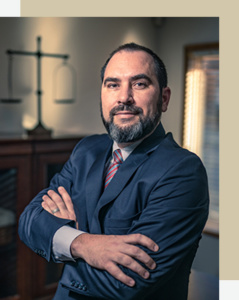If someone recently hurt you in a preventable accident, the attorney you choose will play a significant role in the outcome of your case. But how do you make the right choice?
By asking the right questions.
Here’s what you should ask any prospective injury lawyer in Marion before you commit to working with them.
How Long Have You Practiced Personal Injury Law?
Ask a prospective attorney about the duration of their practice in personal injury law to understand their experience level.
An attorney who has been practicing for several years typically has handled diverse cases, confronted numerous challenges, and cultivated a breadth of beneficial knowledge.
A long-standing practice can indicate a lawyer’s dedication to the field and understanding of its complexities. When answering this question, the lawyer should specify the number of years they have practiced and their rate of success in the field.
Have You Handled Cases Similar to Mine Before?
An attorney’s experience in a specific area can indicate their understanding of relevant laws, possible challenges, and the best strategies to achieve favorable outcomes.
By asking this question, you can gauge whether a prospective attorney is familiar with the nuances and complexities of your particular situation. The ideal response is “yes,” with examples or brief histories of similar cases. This proves the attorney’s direct experience and ability to handle situations like yours.
What Percentage of Your Practice Do You Devote to Personal Injury Cases?
Personal injury law is often complex and distinct from other legal areas. A lawyer who dedicates a significant portion, if not the majority, of their practice to personal injury cases is likely more attuned to the challenges specific to this area.
When answering this question, the attorney should indicate that personal injury law is a substantial percentage of their practice. This suggests the attorney regularly handles such cases and is deeply familiar with the process of pursuing favorable outcomes.
Will You Serve as the Primary Attorney Handling My Case?
Asking a prospective lawyer whether they will work as the primary attorney handling your case will provide clarity and help manage expectations.
A prospective attorney should explain the structure of their legal team and the communication you can expect as a client.
It’s not uncommon for senior attorneys to delegate tasks to junior attorneys or paralegals, but understanding primary responsibility ensures you know who to turn to with questions. Ideally, the attorney should clearly outline the roles of each team member and confirm that they (or the senior attorney) will remain actively involved.
What Is Your Track Record of Case Results?
The answer to this question provides insight into a prospective attorney’s experience and success in representing clients in similar situations. A strong track record indicates the lawyer’s proficiency in navigating the legal system and ability to negotiate favorable settlements or argue effectively in court.
While past results do not guarantee future outcomes, they gauge a prospective attorney’s capabilities. When answering this question, the lawyer should provide specific examples of cases resembling your own and the favorable outcomes accompanying them.
How Often Do You Take Cases to Trial?
An attorney who frequently goes to trial suggests confidence in building and presenting solid cases, which could indicate that they are not quick to accept low settlement offers.
Conversely, an attorney who rarely or never takes cases to trial might prefer quicker settlements.
The ideal approach will vary based on your preferences. If you’re looking for as much compensation as possible and can endure a longer process, you may want an attorney with a solid trial record.
However, if a quick resolution appeals to you, you might want an attorney who excels at negotiating settlements.
How Do You Handle Fees and Costs?
Asking a prospective injury attorney how they handle fees and costs is essential for understanding your potential financial obligations throughout the legal process.
This question addresses the attorney’s payment structure. The lawyer should say whether they operate on contingency (where they only get paid if you win), require a retainer, or charge by the hour. The answer will give you insight into out-of-pocket expenses you could incur and whether you’ll be financially responsible even if you don’t secure a settlement or win at trial.
Many personal injury attorneys work on a contingency fee basis, ensuring their interests align with yours. Opting for an attorney with this payment structure can provide peace of mind, as it often indicates that they’re confident in their abilities and the strength of a case.
How Will You Communicate Updates About My Case?
For multiple reasons, understanding how a prospective injury attorney will communicate updates about your case is vital. First, consistent and clear communication reflects an attorney’s professionalism and commitment to their clients.
Some cases take longer to resolve, and during that time, attorneys need to keep their clients in the loop regarding developments, decisions, and changes. Asking this question allows you to set expectations about frequency and modes of communication.
Ideally, a prospective attorney should provide regular updates through emails, phone calls, or meetings, depending on your preference as the client.
A favorable answer would demonstrate the attorney’s willingness to engage with you proactively, keeping you well-informed and involved in the process, which can foster trust and confidence.
How Long Do You Anticipate It Will Take to Resolve My Case?

The answer to this question is essential for setting realistic expectations and planning for the future. A knowledgeable attorney should provide a rough estimate based on the complexity of your case, their experience with similar cases, and the usual timelines of the legal process.
While no lawyer can guarantee a specific timeframe, a well-informed estimate reflects their understanding and familiarity with the nature of personal injury cases. The response will allow you to gauge the personal injury attorney’s experience and help you mentally and financially prepare for the duration of the legal journey ahead.
